-
Composer
- Commissions, Awards, Collaborators & Typesetting
- Downloadable Choral Music (Church) >
- Downloadable Instrumental Music (Church) >
- Published Choral Music (Church)
- Downloadable Choral Music (School & Community) >
- Published Choral Music (School & Community)
- Downloadable Instrumental Music (School & Community)
- Downloadable Vocal Exercises
- Hymn Writer
- Teacher
- Minister
|
In 2005 I was asked by the choral editor at Choristers Guild to provide two anthems based on particular scripture passages. Perusing a list of possible choices, I quickly found interest in setting the ideas from the 25th chapter of Matthew’s Gospel: “for I was hungry and you gave me food, I was thirsty and you gave me something to drink, I was a stranger and you welcomed me, I was naked and you gave me clothing, I was sick and you took care of me, I was in prison and you visited me” and “just as you did it to one of the least of these, you did it to me.” Inspiration from these passages resulted in: Whoever Welcomes You Welcomes Me – a composition consisting of four questions and a theological statement. Question #1: Where will we find you? Where will we find you, Christ, who is coming? Where will we welcome you? Where will you be? Will you be feasting with friends at a banquet, or will you hunger alone in the street? Where will we find you? Where will we welcome you? While writing this piece, I was cognizant of scriptural and experiential paradoxes related to how Christ is encountered. On one hand, the Gospels depict Jesus attending celebratory meals with friends, from the wedding banquet at Cana to breakfast by the Sea of Galilee. On the other hand, the Christ figure is portrayed in scripture as a stranger who is hungry and thirsty. For many years the congregation I serve as minister of music has fed the hungry and those experiencing homelessness. Witnessing the lines of people who come weekly for food and fellowship gave further instruction for this stanza and the next. Question #2: What will you look like? What will you look like, Christ, who is coming? What will we recognize? What will we see? Will you be wearing the finest apparel, or will we see you in rags and in need? What will you look like? What will we recognize? I sometimes compose texts or music in my head while driving. One day while driving and thinking on the words for this second stanza, I turned a corner into a McDonald’s drive-through. At that corner was a shabbily dressed woman inviting donations of money or food. Waiting in the car line for my own breakfast, I thought of the how her experience paralleled the teaching from Matthew 25, that she was the embodiment of Christ in need. Conversely, I also knew I had experienced the Christ-presence in persons of wealth and resources. These contrasting thoughts converged in this stanza. Question #3: When will you get here? When will you get here, Christ, who is coming? When will your advent be? Will you arrive when we're least expecting, or with fanfare and pageantry? When will it be? This crying out of “When (and how) will you get here?!” is expressed with a sudden change in the mood and music of the anthem. This portion of the piece takes on a frustrated tone as it continues to respond to scriptural discrepancies. The stories of Jesus riding into town with great pageantry, and the coming of Christ announced with celestial trumpets are found in the same Bible that reveals a Christ who arrives unexpectedly without preparation or fanfare. Question #4: Who will you visit? Who will you visit, Christ, who is coming? Who will you visit here? Who will you see? Will you be laughing and playing with children, or stay with prisoners who long to be free? Who will you visit? Who will you visit here? The beloved story of Jesus welcoming children and the teaching of the Christ being known in prisoners are both alluded to in this stanza describing diverse people in whom the divine is known. Another influence was the knowledge that my congregation includes persons who fight against the death penalty. Through the years this has included picketing outside of the state prison, visiting with death row inmates and holding congregational vigils before an execution. A line from this stanza originally expressed: “Will you be laughing and playing with children, or be a prisoner who longs to be free? Though I think this original line more closely communicates the teaching from Matthew of Christ being the prisoner, the publisher’s editors conversed with me about altering this line to the one above that is perhaps more poetic to sing. A Theological Statement And Jesus says: "Whoever welcomes you welcomes me, so, wherever you will go, I will be; and, whatever you look like, I will look like, too; I will speak in your words and in everything you do. Whenever – my advent is whenever – my advent is whenever you discover I am in you; when you discover I AM in you!" The beauty and strength of the Gospels is that they present different and even contradictory descriptions of Jesus. This understanding supports the anthem’s paradoxical questions: Does Christ feast at banquets or starve in the streets? Is Christ wealthy or in need? Does Christ visit children on the playground or prisoners in jail? The concluding theological statement seeks to affirm the Christ-presence in all of these and more. Taking Jesus’ statement from Matthew 10:40 (“Whoever welcomes you welcomes me”) to its ultimate conclusion, the final section exclaims that every person of every description speaks and acts as Christ. This reveals that the coming (advent) of Christ happens whenever humankind discovers their divinity within. A theological play-on-words in the last few lines reinforces this concept. It occurs when Jesus’ proclamation: “I am in you” is repeated but transformed into “I AM in you.” In all caps, “I AM” is a name for the divine found in the Hebrew Scriptures and expresses the divine in all. Whoever Welcomes You Welcomes Me is dedicated to my mother, Opal Lee Schultz, who was active in Woman’s Missionary Union, and involved me in missions education from an early age. That formative experience taught me that I was part of a global community and engaged my thinking on “who” was my neighbor, “what” they might look like, “when” I would encounter them, and “where” they might be. This anthem published by Choristers Guild (CGA1067) for unison or two-part voices with piano and optional flute accompaniment has been presented by choirs of all ages as well as vocal duets. The piece is meaningfully sung in the season of Advent or on any occasion when the divine is discovered. Whoever Welcomes You Welcomes Me is expressed by alto and tenor duet, piano and flute in worship at First Presbyterian Church, Ann Arbor, Michigan.
Before I knew it was one of the most historic and identifying characteristics of Baptists, my parents taught me what it meant to be a Separatist. In the mid-1970’s my family separated from our local Baptist church after it was strategically overtaken and controlled by a large group of new members who enforced outlandish theologies and unreasonable practices. This separation was not done lightly nor without grief as my parents had invested 30 years of their lives in this congregation. They made the decision to move from Tulsa’s Phoenix Avenue Baptist Church, to nearby Red Fork Baptist Church, in order to provide a positive experience for me as I entered junior high school. This change impacted my life for the better and demonstrated there would be occasions when being a Separatist was the best choice. As I grew and prepared for ministry, this understanding continued to guide my church and denominational life. The Southern Baptist Convention taught me what it meant to be Fundamentalist. In the 1980’s the SBC (a denomination whose history includes the endorsement of slavery) shamefully pronounced the inequality of women, the depravity of homosexuals and a disregard for Biblical scholarship. During this time, I was receiving excellent training for music ministry at Oklahoma Baptist University where I experienced the exact opposite: gifted women who were professors and church ministers, upstanding gay friends, and a responsible, thoughtful approach to the Bible. While continuing my education at The Southern Baptist Theological Seminary, I witnessed the Convention’s fundamentalist takeover that resulted in hurtful actions bombarded upon professors and students. In response, I wrote a hymn in 1988 that was published in The Baptist Hymnal, 1991: “O God, We Ask for Strength.” At best, the hymn was my protest; naively, I thought the SBC might sing its words and repent. But it didn’t work, and I became a Separatist again, not wanting to be associated with a denominational group that weaponized the Bible to harm and abuse others. The national Cooperative Baptist Fellowship taught me what it meant to be Moderate. In the year 2000, the national CBF Coordinating Council voted to affirm policies that would communicate a position of being “Welcoming but Not Affirming” of LGBTQIA+ people. (If that’s not a moderate stance, I don’ t know what is.) At the time I was the youngest member of the national CBF Coordinating Council, and after standing with those who opposed this position, I immediately resigned from the council, becoming a Separatist once again. Having lived through the exclusionary trauma of the SBC, and after giving much time and energy to both state and national CBF bodies, I was physically sick to experience the national CBF’s acts of oppression. (Because of Baptist polity I make a distinction between the actions of the “national” and “state” CBF organizations, as each body is autonomous). It was not lost to me that the CBF, an organization whose membership was comprised of outcasts from the SBC, was now continuing the same cycle of exclusion. I knew that some members would remain in an effort to bring about change from within, but I also knew that individual and institutional advancement would take time. After personally witnessing the deeply injurious actions of the SBC, I didn’t want to spend my time in ministry trying to convince another ecclesiastical organization that it should be inclusive. I simply did not have the patience or desire. The Alliance of Baptists, my church congregation and others are teaching me what it means to be Liberal and “beyond.” During my seminary years I heard about the formation of the Alliance of Baptists, and the first two churches I served were minimally associated with this fledgling Baptist network. After my resignation from CBF, I became much more involved in the Alliance and read in its newsletter about the search for a Minister of Music at Pullen Memorial Baptist Church, Raleigh, NC (which I became in 2001). I had previously learned about Pullen through national news articles that revealed the church’s commitment to fully include LGBTQUIA+ people. Because of this stance, in 1992 the SBC ousted Pullen from its membership, but a supportive community was already in place as five years earlier members of Pullen joined others in forming the Alliance. After becoming Pullen’s Minister of Music, I learned that the church never connected to the moderate CBF because it suspected from the beginning that the CBF would not be as open and inclusive as the Alliance. From my experience, this prediction was accurate. While no congregation or denominational organization is perfect, the liberalism expressed through Pullen and the Alliance of Baptists resonates with me and seems to have put an end to my Separatist ways. A liberalism that continues to progress encourages life-long learning, the willingness to venture out, and the equal willingness to change course as new wisdom emerges. Compared to the mental restraints of fundamentalism, progressive liberalism allows the freedom of inquiry essential for this post-theistic century. But liberalism also has limits. There are times when liberalism is inadequate and invites the search for what is “beyond." Perhaps even more descriptive for me than the term, “Liberal,” are words I suggested for a sanctuary art installation at Pullen: “Ever Embracing” and “Ever Becoming.” These active phrases express how I desire to be identified – “Ever Embracing,” as I participate with my church and other groups in welcoming and including all, and “Ever Becoming” as I evolve, explore new insights, and discover who continues to be excluded. Interestingly, it is by being a Separatist that I have been able in good conscience to remain both Christian and Baptist – two worlds in which I was born, have grown, was educated, and continue to offer my ministry of music. Songs Born Out of |
AuthorLarry E. Schultz is a Minister of Music, composer, hymn writer and teacher. Archives
July 2023
Categories
All
|
Copyright 2024 Larry E. Schultz. All rights reserved.
-
Composer
- Commissions, Awards, Collaborators & Typesetting
- Downloadable Choral Music (Church) >
- Downloadable Instrumental Music (Church) >
- Published Choral Music (Church)
- Downloadable Choral Music (School & Community) >
- Published Choral Music (School & Community)
- Downloadable Instrumental Music (School & Community)
- Downloadable Vocal Exercises
- Hymn Writer
- Teacher
- Minister


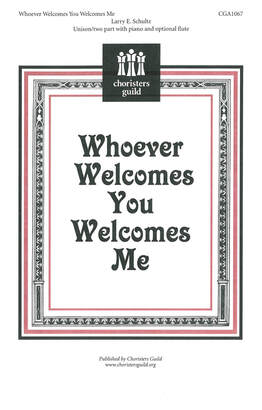

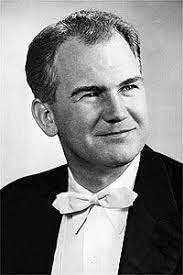

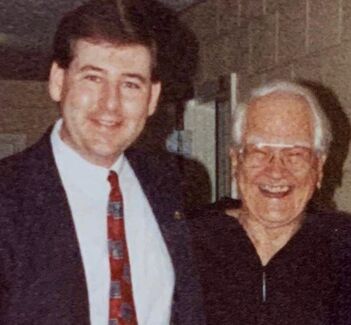
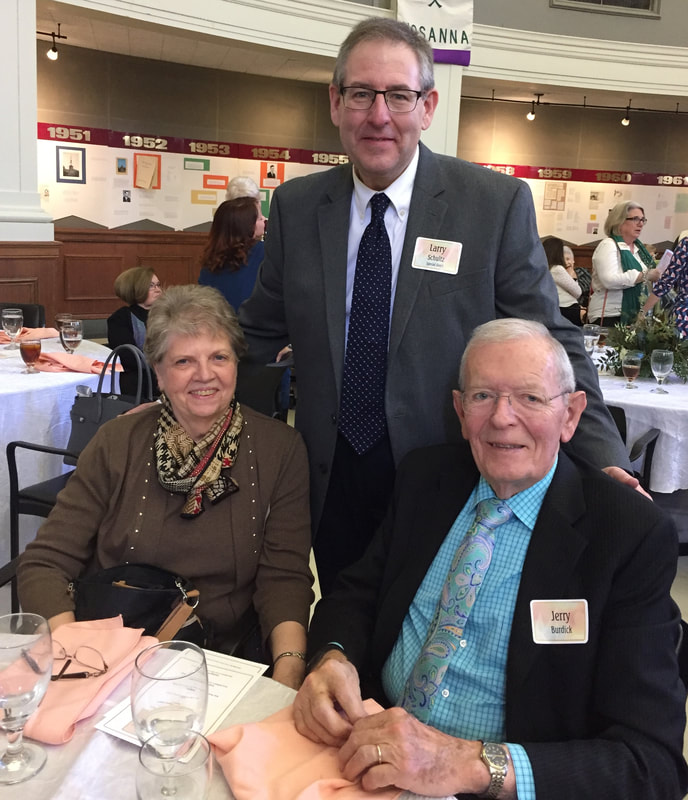
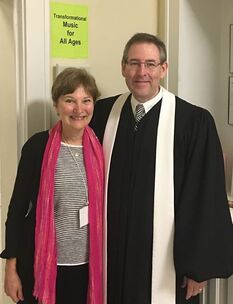

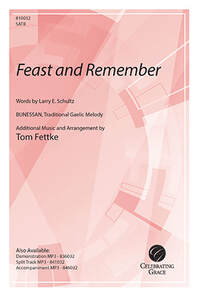
 RSS Feed
RSS Feed